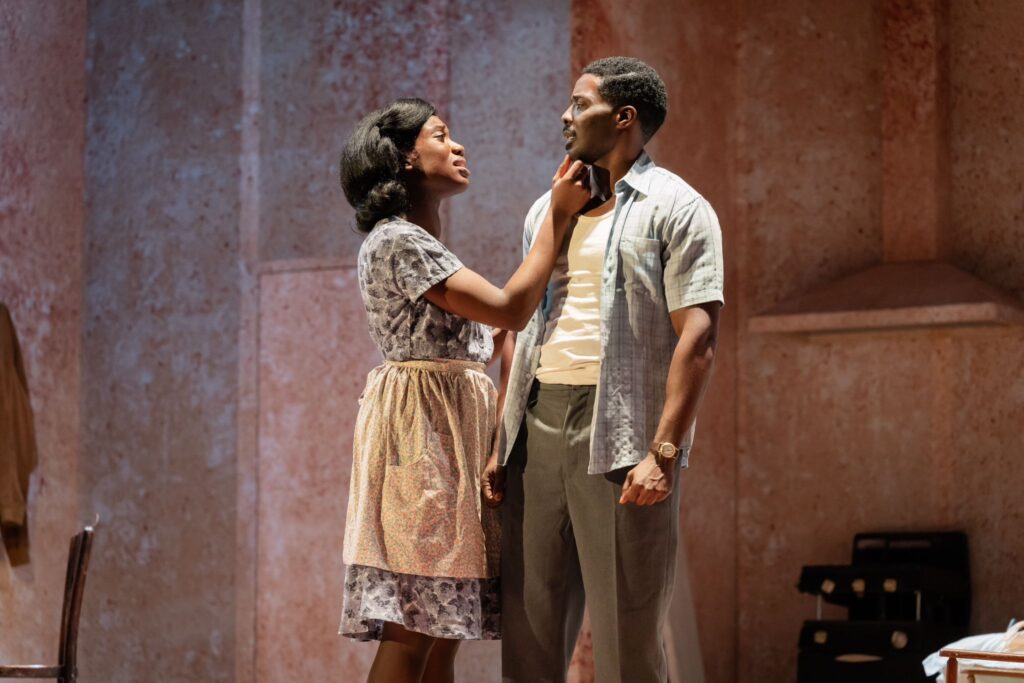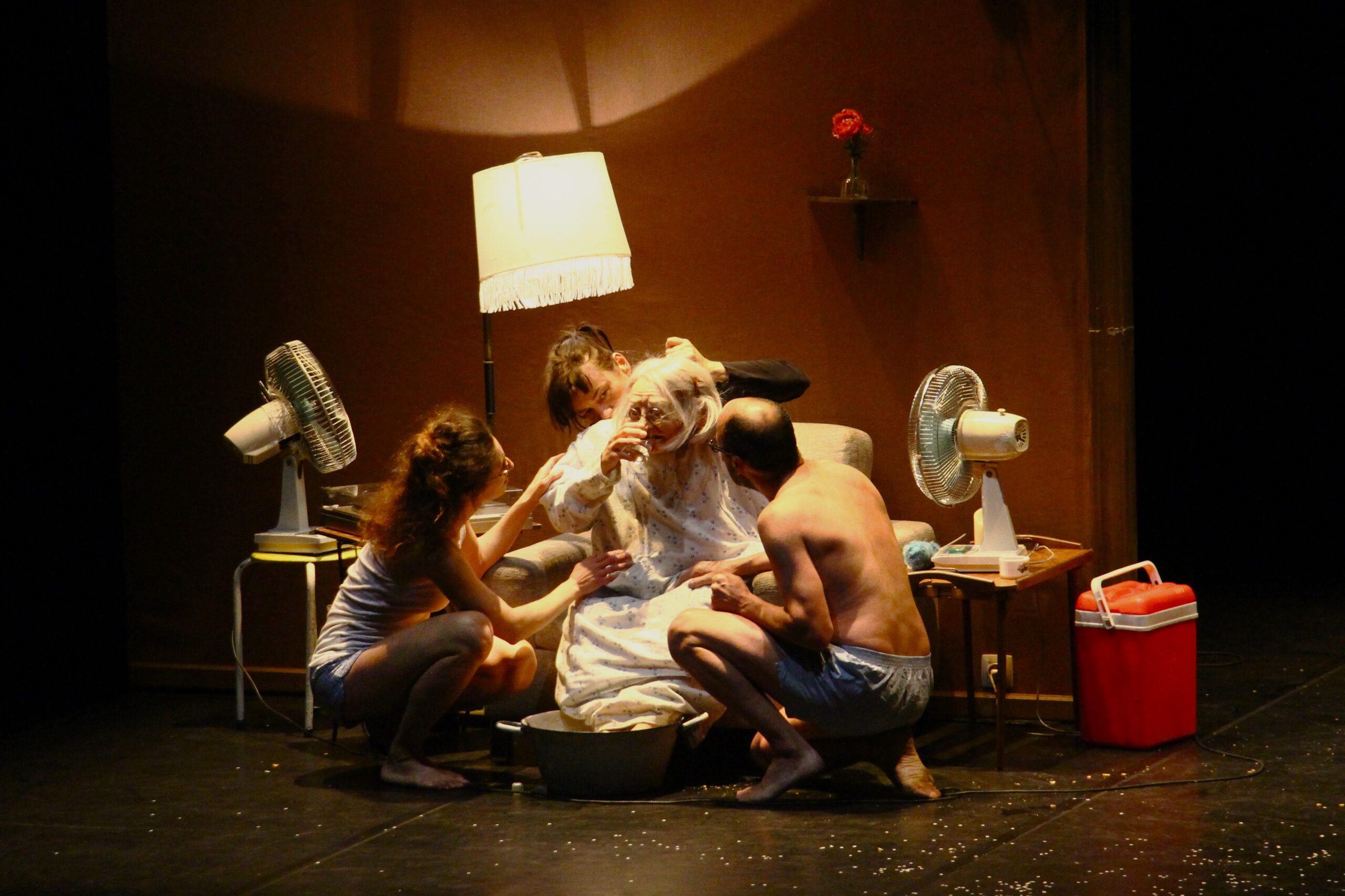
Lorraine Hansberry’s A Raisin in the Sun was the first play by a black woman to be performed on Broadway, and the first with a black director in Lloyd Richard. It became a hit despite almost not happening at all – it took its producers considerable time to raise the capital needed to put on the Sidney Poitier-fronted production.
Its impact has been notable, introducing traditionally white audiences to black life and drawing more diverse audiences in the process – its legacy can be seen in the productions it has inspired including the so-called The Raisin Cycle – Bruce Norris’s Clybourne Park and Kwame Kwei-Armah’s Beneatha’s Place which act as prequel and sequel respectively. It returns now, opening at Leeds Playhouse in a Headlong production, before touring to Oxford Playhouse, Lyric Hammersmith Theatre and Nottingham Playhouse.
The Younger family have been waiting for the imminent arrival of a cheque – the proceeds of the family patriarch’s life insurance following his death. For each family member, living in a cramped two-bedroom flat that matriarch Lena (Doreene Blackstock) moved into as a young newly married woman, the $10,000 represents a chance of a new life – but their views on what that means differ.
For Lena’s son Walter Lee (Solomon Israel), it is the chance to open a business and finally become a man in charge of his own life. For Ruth (Cash Holland), it is the opportunity to escape the claustrophobic life affecting her marriage to Walter Lee. Lena’s daughter Beneatha (Joséphine-Fransilja Brookman) sees the money securing her future as a doctor by covering her medical school fees. In contrast, Lena herself sees it as the opportunity to secure comfort for the family’s future, including a better future for her young grandson, Travis (played by Josh Ndlovu tonight).
Directed by Tinuke Craig, it’s a faithful period piece with a hint of the abstract in the translucent screens that border the family kitchen in Cécile Trémolières’s stage design. But Craig takes it too far putting too much of the emphasis on staying faithful to the text and as a result, the production moves at a snail’s place as every utterance is wrung for its life.
That is to be dramatic about it – maybe – but the creeping pace does highlight the predictable nature of the twists and turns of the story so that there is little surprising, and with that significant tension is lost. Still, there is power in the play’s content despite this as the Younger family battles racial discrimination while trying to keep hold of their dreams and there are some strong performances, notably Israel’s fierce but fragile Walter Lee who finds out which dreams are worth fighting for.
Rating: ★★★☆☆ (Good)
A Raisin in the Sun is at Leeds Playhouse until 28 September, then touring.














